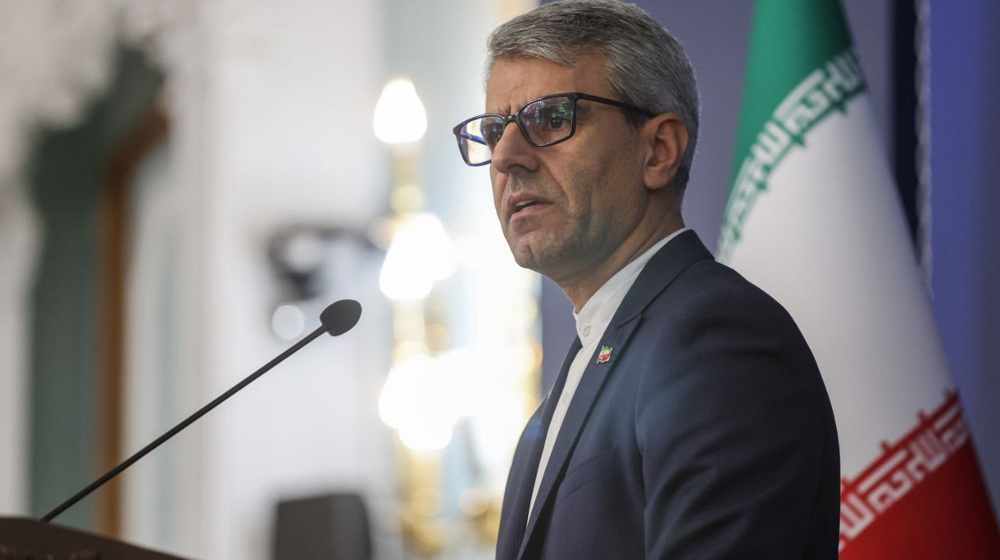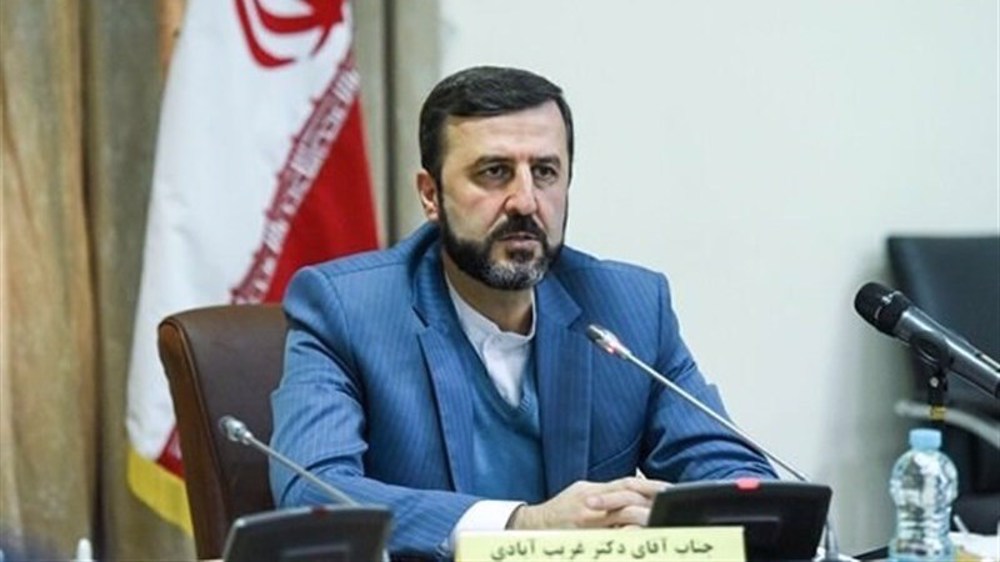Iran, P5+1 make diplomatic breakthrough in nuclear talks
Well over a decade of negotiations on Iran’s civilian nuclear program have finally concluded, with the Islamic Republic and its latest interlocutors, the P5+1, sealing an agreement.
The hitherto elusive agreement was finally nailed down on Tuesday in the ritzy Palais Coburg Hotel in the Austrian capital of Vienna, where negotiators from Iran and the six other countries had recently been spending over two weeks to work out the remaining technical and political issues.
Terms of agreement
The agreement, the Joint Comprehensive Plan of Action (JCPOA), will, according to Iranian officials, be presented to the United Nations Security Council (UNSC), which will adopt a resolution in seven to 10 days making the JCPOA an official document.
Based on the agreement, which has been concluded with due regard for Iran’s red lines and is considered a nuclear achievement for the country, the world powers recognize Iran’s civilian nuclear program, including the country’s right to the complete nuclear cycle.
The UNSC sanctions against the Islamic Republic, including all economic and financial bans, will be lifted at once under a mutually agreed framework and through a new UN resolution.
None of the Iranian nuclear facilities will be dismantled or decomissioned.
Furthermore, nuclear research and development activities on all types of centrifuges, including advanced IR-6 and IR-8 machines, will continue.
The nuclear-related economic and financial restrictions imposed by the United States and the European Union (EU) targeting the Iranian banking, financial, oil, gas, petrochemical, trade, insurance and transport sectors will at once be annulled with the beginning of the implementation of the agreement.
The arms embargo imposed against the Islamic Republic will be annulled and replaced with certain restrictions, which themselves will be entirely removed after a period of five years.
Additionally, tens of billions of dollars in Iranian revenue frozen in foreign banks will be unblocked.
A total of 800 natural persons and legal entities, including the Central Bank of Iran (CBI), the Islamic Republic of Iran Shipping Lines and the National Iranian Oil Company (NIOC), will be taken off sanctions lists.

Days without an agreement
Following several extensions of official and unofficial deadlines in the latest round of the nuclear negotiations, there were increasing signs that an agreement was imminent on Tuesday.
On the days before the agreement was announced, however, bits and pieces of information trickling out of the venue of the closed-door talks had left observers worldwide clueless at worst and only cautiously optimistic at best about the outcome of the talks.

Iran & IAEA
Earlier, Yukiya Amano, the head of the International Atomic Energy Agency (IAEA), announced that the UN nuclear watchdog has signed a “road map” with Iran for probing the so-called possible military dimensions (PMDs) in the Islamic Republic’s nuclear activities.
Iran categorically denies any such dimensions in its nuclear program.
Head of the Atomic Energy Organization of Iran Ali Akbar Salehi also said that based on the road map, the two sides will take measures to fully resolve all outstanding issues of the past regarding the Iranian nuclear program.
A road not taken
While the agreement will be the subject of scrutiny in the next couple of days by both supporters and opponents, who will produce their versions of what it implies for the world, it is already certain to usher in an era of enhanced political and trade ties between Iran and its international partners.
The diplomatic breakthrough is likely to – in the words of Iran’s Foreign Minister and top negotiator Mohammad Javad Zarif – “end an unnecessary crisis” over the Islamic Republic’s nuclear program and “open new horizons” for all concerned parties.

An unnecessary crisis
The standoff over Iran’s nuclear program began back in 2003 when Western countries and some of their allies accused the Islamic Republic of seeking to build a nuclear bomb, an allegation Tehran categorically denied.
The dispute lingered despite the fact that Leader of the Islamic Revolution Ayatollah Seyyed Ali Khamenei had declared as forbidden the pursuit and possession of atomic weapons, and that countless reports by IAEA found no evidence to prove the allegations of military diversions in the Iranian nuclear program.
A matter of time?
An original June 30 deadline, set by the negotiating sides themselves for the conclusion of the agreement – the Joint Comprehensive Plan of Action (JCPOA) – had been extended several times for the conclusion of the talks.
Negotiating delegates had on several occasions said that deadlines mattered little, which probably explains why an unofficial July 10 deadline was also missed, a development that gave the US Congress – a hotbed of opposition to any agreement – an added 30 days for a review of the agreement.
Long way to success
The nuclear talks had been going on for over 12 years. Iran’s original negotiating partners were the UK, France and Germany, a group known back in 2003 as the E3.
The talks gained greater momentum under the administration of Iranian President Hassan Rouhani, who tasked the Iranian Foreign Ministry – under Zarif’s watch – with handling the talks soon after assuming office in 2013.
Prior to the past 22 months, Iran’s Supreme National Security Council (SNSC) had been in charge of the talks under previous administrations.
In late November 2013, Iran and the P5+1 group had reached a historic interim accord.
Since then, Tehran and its negotiating partners had held numerous rounds of talks in a bid to narrow their differences and reach a comprehensive final agreement.
In early April, the two sides reached mutual understanding on the key parameters of the JCPOA in the Swiss city of Lausanne.
Hamas: Israel escalating ceasefire violations in Gaza
Venezuela's government declares unwavering unity behind Maduro
VIDEO | Global outcry over Venezuela president abduction
Iran keeps wheat import subsidies despite cutting other food supports
Venezuelan military stands with acting president after US kidnapping of Maduro
VIDEO | Press TV's news headlines
VIDEO | Protesters in Toronto slam US kidnapping of Venezuelan president
Israeli troops detain, intimidate Palestinian toddler in West Bank










 This makes it easy to access the Press TV website
This makes it easy to access the Press TV website